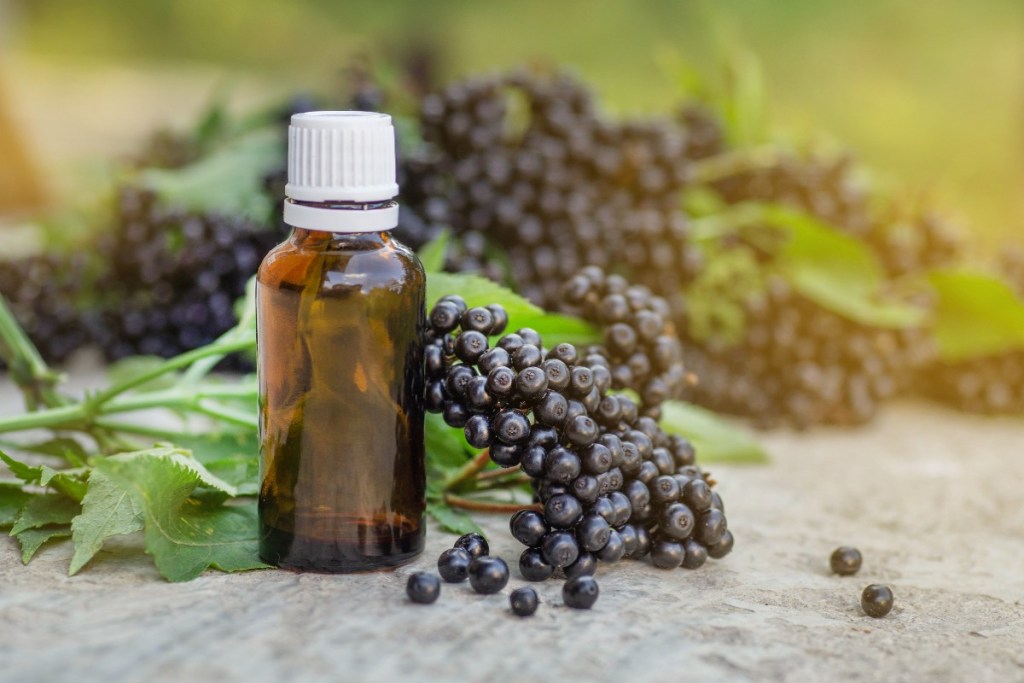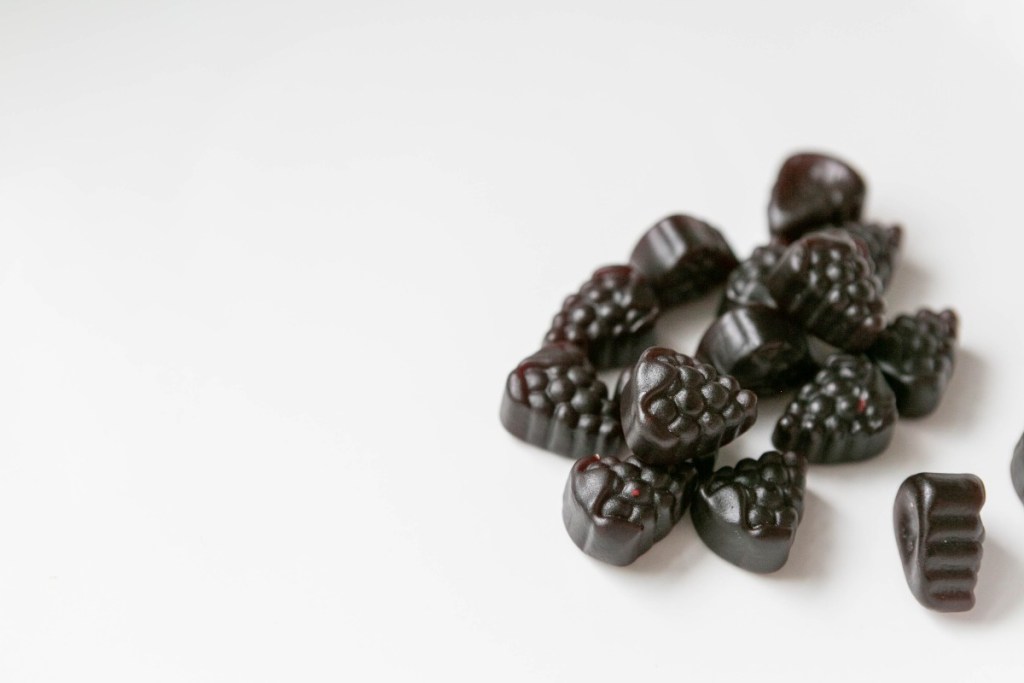A sniffle here. A cough there. That cranky kiddo mood. Uh-oh, a cold is coming.
When your child appears to be coming down with the sniffles, you might be tempted to reach for all sorts of supplements — anything to stop an infection or virus in its tracks and prevent a full-blown household domino effect. One option that you may consider is elderberry. You may have previously heard of this super fruit and its medicinal uses, but is it safe for children? And what should you keep in mind? We’re sharing the beneficial basics — plus, some expert commentary to answer all your top questions.
What is elderberry?
Elderberries are the berry fruit part of the elderberry shrub. The rich purple berries are potent with immune-boosting vitamins, inflammation-fighting antioxidants, and antiviral properties. Elderberry fruit and its byproduct syrup have been utilized as a natural health treatment and preventative for centuries, with many supporters touting its effectiveness at fighting colds, relieving flu symptoms, easing constipation, soothing pain, and helping with or even preventing other common conditions.
The use of elderberry in kids
Dr. Lisa Stern, senior partner at Tenth Street Pediatrics, said that she generally feels confident recommending elderberry as a safe and natural treatment for patients 4 years of age and up. In fact, the practicing pediatrician said that it can be a great nonprescription alternative for children who are experiencing flu symptoms:
The only prescription treatment [is] Tamiflu, an antiviral that is expensive and not well-tolerated by young children. I generally try to avoid prescribing it. On the other hand, my experience with elderberry syrup is that it is a safe, natural remedy that can be helpful when treating uncomplicated influenza.”
In fact, a 2019 study showed that using elderberry can be extremely effective in treating upper-respiratory symptoms that generally accompany the flu and the common cold.
Precautions to keep in mind
While elderberries or elderberry syrup can definitely be helpful, it is important to ensure that the healthful ingredient has been prepared properly; the berries should never be taken in raw form. Morgan Simon, functional therapy practitioner at JoySpring Vitamins, emphasized the need to obtain elderberries from a “trusted source,” if you are trying to prepare a syrup yourself:
“I love to make my own elderberry syrup at home with wild-crafted elderberries. When that isn’t an option, I recommend looking for a high-quality elderberry syrup that doesn’t contain preservatives or refined sugars,” Simon said to NewFolks.
To that end, you can find prepackaged, prepared elderberry syrup (i.e., Sambucol), lozenges, gummies, and capsules at most natural health-food stores. Just be sure to follow dosage carefully — and, when in doubt, check with your pediatrician about any supplements before starting your child on a new routine.
If you do choose to make your own elderberry syrup for kids, you should find a recipe from a trusted source. Generally speaking, you want to boil dried elderberries in distilled water, allow the concoction to steep, then strain the liquid before adding some natural form of sweetener. Of course, use caution; inadvertently consuming raw elderberry (or even overconsuming cooked ones) can leave you — or your kiddos — with quite the upset tummy, nausea, or worse.
Additionally, while elderberry can be a good option for children experiencing flu-like symptoms, Dr. Stern does not advise using it for treatment of COVID-19: “Because the coronavirus is different than most other viruses that we have seen, I am not recommending elderberry … There is still so much we don’t know or understand about this wily virus.” She elaborated that the best tools for avoiding infection remain social distancing, mask wearing, and hand washing.
If you or our child take an immune-suppressing drug, talk to your doctor or pediatrician about using elderberry, as it can interact with certain common medications.
Elderberry might be a great option for mild symptoms and the occasional immune-system recharge — especially when you are hoping to stave off an illness. It is important to remember, though, that no supplement can replace necessary medical treatment. Always talk to your child’s pediatrician for diagnosis and/or if symptoms worsen. In the meantime, you might want to consider keeping a ready-made elderberry option handy for the next time those sniffles start up.




